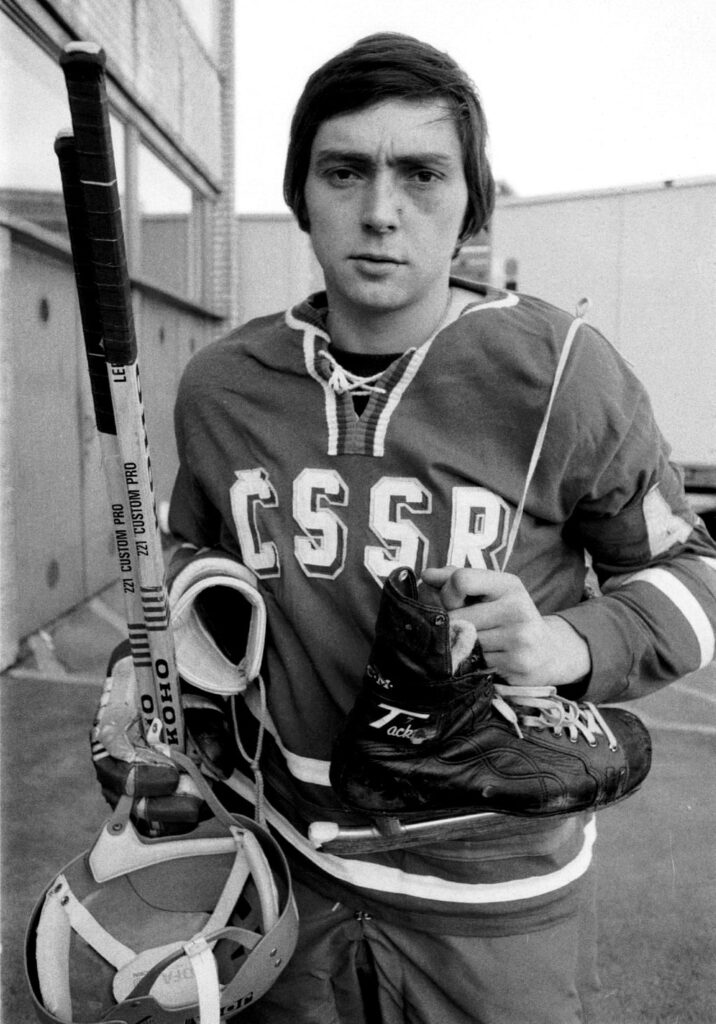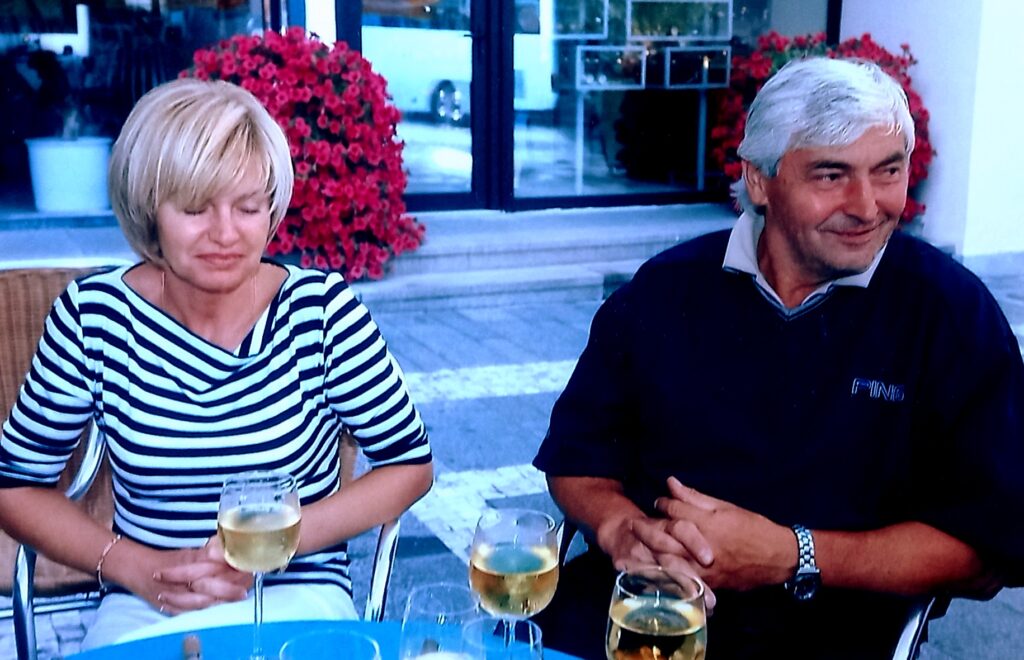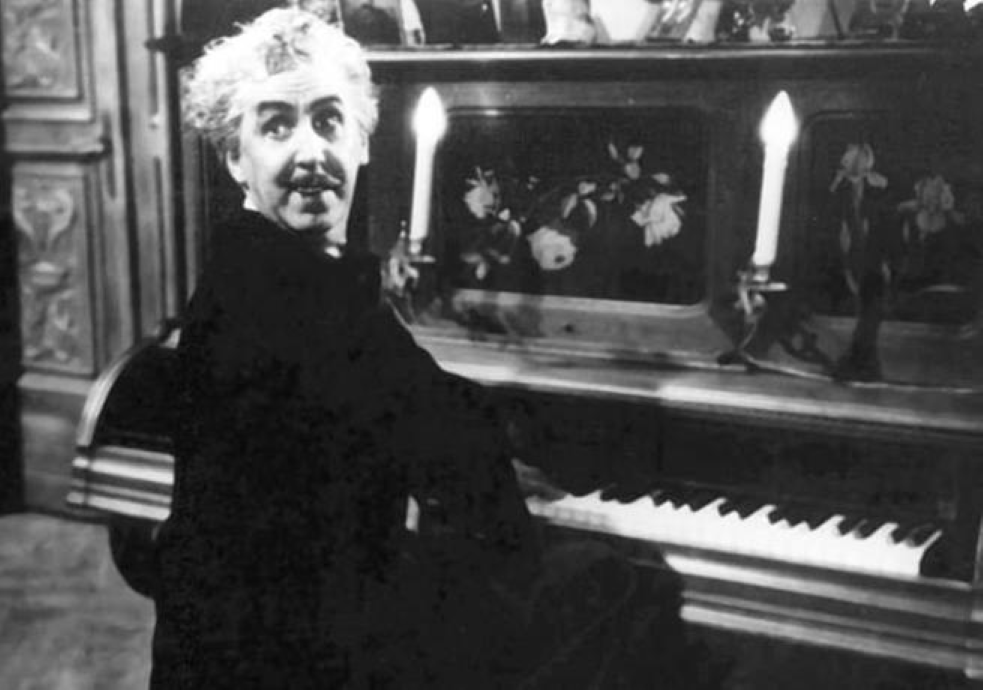This Prague-based journalist, screenwriter and writer was born on 22 March 1946 in Šluknov, North Bohemia. One could say that he is a man of nine trades and many interests, which are dominated by contemporary film, theatre and non-fiction. He once wrote a play for Lyra Pragensis Why don't you leave, Rodrigowhich he also directed. His books include Legends of Hollywood Paradise, in collaboration with Ondřej Suchý The magical Laterna and the camera of Jan Werich, concerning our extraordinary success at Expo58 in Brussels. We cannot forget his also successful publication Kucherovci - or Legends under sombreros or a book of medallions of three dozen leading personalities of our contemporary life from various fields of human activity With coffee and sauvignon.
As a journalist, he collaborates with a number of periodicals, both print and online. His excellent series on the stars of the golden age of the American Dream Factory in Xanthippe magazine was popular, as was his twelve-part series on the history of the Beatles and our and world opera in Revue 50.
As a journalist, he collaborates with a number of periodicals, both print and online. His excellent series on the stars of the golden age of the American Dream Factory in Xanthippe magazine was popular, as was his twelve-part series on the history of the Beatles and our and world opera in Revue 50.

From culture to sport
Nowadays, however, Vlastník has expanded his literary interests to include sports. He has just finished the manuscript of a book about the life story of the famous hockey player Hlinka, which was the reason for our interview. We are interested in...
Culture and sport, how it rhymes?
Sport? Yes, of course, I know the word. I spent my childhood in the suburbs of Mělník in the fifties, at a time when my parents could still let us out of the house without fear of any danger. We played football, climbed trees in other people's gardens, fished in the Elbe pools. I ran the 400 and 800 meters for the university Slavia in technology. I've been a cyclist all my life, I'm a decent cross-country skier. My friend Pepa and I used to conquer the sky as paragliders.
I didn't start writing for a living until I was fifty years old. I've written maybe two thousand articles and a couple of books, but never really about sports. However, I know a few people who have sport as a basic necessity of life and, like my son, have completely fallen for it. So I can say a few words on the subject of culture and sport.
The athlete has no time for the agonizing groping of the writer or painter. He either jumps the bar or he falls. And he knows immediately - I'm good or I'm not. A writer or a painter never knows. Have I written a world-class novel or pages of chatter? Have I painted a great masterpiece or a piece of greasepaint? Sport releases endorphin, an opium-like substance that produces a feeling of unprecedented well-being. The athlete will have a glass of kefir afterwards and fall asleep sweetly after that great performance.
A sports writer takes a drink of absinthe or beer and writes a poem. I don't know whether a Wimbledon winner can write a great collection of poetry or a novel at the same time - I'll ask my friend, the poet Jiří Žáček, for his opinion.
What led you to write this book?
I was talked into it. The publisher decided - you're a writer, so write! He wasn't really interested in my hockey experience. I could still list all my favorite hockey stars from my childhood in the 1950s. Now I practically only watch the World Championships, I cheer enthusiastically, but the names of the players immediately fade from my memory. A lot of people around here follow the Canadian NHL, but I don't. Of course - I knew that Mr. Jagr was playing on Canadian ice and Dominik Hasek was catching pucks. That's mostly thanks to my son, for whom the legendary goalie was an idol.

Hlinka is a legend in our hockey. But which one is it, Jarda or Ivan?
Of course, this is about Ivan Hlinka. I knew that he was a renowned hockey player here and in the world. I remember what a disaster it was, not only for the hockey world, when he died tragically in 2004. But who Ivan Hlinka really was - a hockey player and an exceptional person - I only fully understood after meeting his wife, Mrs. Libena, with whom he had a beautiful relationship. Indeed, it can be said that I was not surprised, but downright amazed. And that decided that I accepted the offer and started to study, interview, write...
How big is the manuscript, how jagged, and what does it record?
The book will be about 200 pages long, depending on the number of photos. Its motto is a question - how his friends remember Ivan after all these years. Not only from the ice rink, but for example a family friend, Mr. Argman, the director of our biggest and oldest porcelain factory and hockey patron. Or Hlinka's great friend - Petr Janda, yes, the star of Olympik. And, of course, the reminiscences of Mrs. Liběna Hlinková or her niece, the famous world top model, Eva Herzigová, dominate.
One interesting fact is that Ivan was also fondly remembered by Slovak players, led by the legendary Jožka Golonka. Perhaps Ivan Hlinka's greatest asset was his natural authority, which he achieved through his ability to deal positively with players and people. He was therefore nicknamed the big boss. And that's what the book will be called.

What background and biographical material did you have on hand, will there be a documentary photo supplement?
There was quite a lot of printed material. Ivan Hlinka was very closely connected with Litvínov, where he was born and played for Litvínov. And from Litvínov came quite a few well-written articles about the local hockey and stadium. Which today bears Hlinka's name. But the main source of information was interviews.
I can say here that I was surprised at how the rugged ice warriors were generally pleasant and very cultured individuals. I remember, for example, the famous defenceman Jiri Sluger, who told me how at the age of 15 he used to put 120 kilos over his head and in Canada he would soap everyone on the ice that the coach pointed at. And our conversation flowed easily with wise reflections not only about hockey. After all, Jiří Šlégr also entered politics for the Social Democrats.
Many of the stars interviewed care about our hockey spawn, they care about the future of our national game and pride. It almost seems like they don't just care about the dollars and personal glory - these great guys really love hockey. So those are kind of the main takeaways from the making of this book.
Photographs? That was a bit of a problem. I took some of them myself, but otherwise you have to watch the copyright. Of course - there will be enough pictures.
When will the book, which will surely go down the drain, so to speak, see the light of day?
Any easier questions? Definitely the book should be available before the world championships. There our national team will be led by the successful coach Radim Rulík, a former assistant to Hlinka, and his memoirs are one of the chapters of the book. In addition to the gold medal we all hope for, it would certainly be another gift for him.
Perhaps I should add - thanks to that really beautiful work with mostly great people, I actually got to know Ivan Hlinka quite well - he was an educated, direct and extraordinarily charismatic man. He accomplished a lot with his steadfastness in what he believed in. He was offered positions in the leadership of our hockey, in politics. He refused them all - I'd have to throw them all out, was his saying. He was very kind to people, but as they say - he couldn't get up anyone's ass for any reason. Ivan Hlinka should be talked about and read about. Such people are few and far between, and we miss them more and more. The youth, so to speak, should have their role models, heroes and idols, whom they then try to emulate in behaviour and deeds.
In this respect, I cannot forgive myself for one more remark of the aging writer - Ivan Hlinka was certainly no dry drinker - he was a heavy smoker and an avid player of mariachi and other games, golf. And he didn't like to lose. He was able to entertain the company - in Nagano he sang in the Slovak House to the players at the dulcimer... But in public he showed off only his skills as a coach and player, what he could do. Werich called it - he had his gloss. Which is unfortunately so lacking in today's pseudo-celebrities who show off their stupidity on media networks every day. To my sadness - this also applies to the world of acting.

Finally, let's turn from sport back to culture. A short time ago, an audiobook of Jara Kohout's memoirs was released Hop here hop there. Kohout, Ferenc Futurista and Eman Fiala were on the heels of Vlast Burian in popularity during the First Republic. Is it true that you also have Eman's autobiography in addition to the mentioned manuscript of Hlinka?
Like any proper writer, I have a drawer of unpublished manuscripts, a drawer that overflows. There are, for example, my memories of the actress Zdenka Procházková. We were close friends and our meetings are one of the most important chapters of my life. There are recordings of conversations with my friend Honza Hromas, the bandleader of the Kučerov family. He invited me to his place in Polni Volerady to put together a book about his very colourful life. We didn't make it - the covid took Honzik away from me.
Of course, everything is dominated by Eman Fiala. I used to sit with his daughter, Mrs. Uxova, with Atka Janouškovou, with whom they toured the whole republic, with the daughter of Eman's close friend and collaborator Jaroslav Mottl, called Lala. He walked among old tramps, read old newspapers... Eman Fiala? An excellent actor, albeit a whole flood of small roles.
It should be added - he didn't really care about the big ones. Just one more reminder - he did not tread on Vlasta Burian's toes at first. The newspapers of the 1920s referred to Eman as the Czech Chaplin. Burian starred in only four films of the silent era, Eman Fiala has 30 of them to his credit. Burian was certainly a brilliant comedian on the world stage. But the floor was pretty narrow. He didn't have the bottom line, he couldn't move people to tears, so to speak. Like Chaplin did, Dad. Bourvil, the American comedians of the silent era, as Eman Fiala did in his roles. Let's think of the famous Batallion.
And then - Eman was also an excellent musician. After all, he came from an artistic family, where every Fiala was a skilled craftsman. They were also called the purple plague. But it's all so ancient - Eman Fiala left us 55 years ago. But the book is certainly worthy, hopefully not only for those who remember.
gnews.cz - Ivan Cerny
PHOTO - archive of Jiří Vlastník



